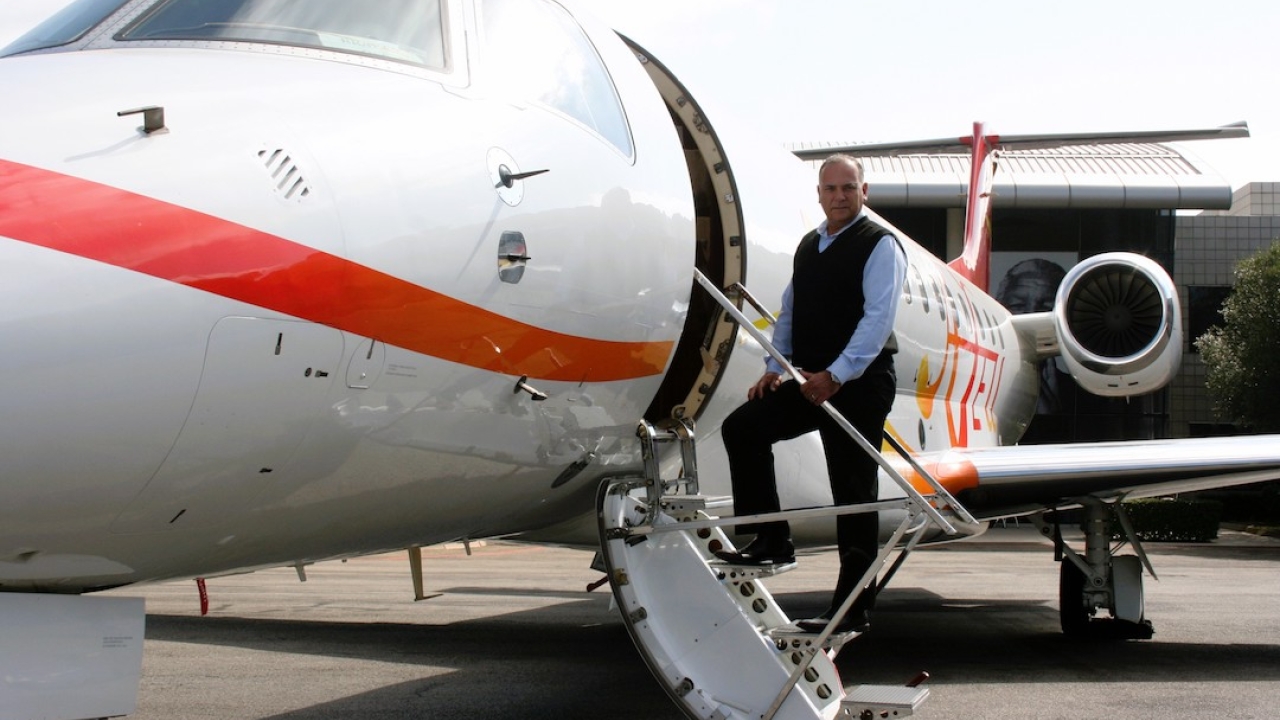Malawi eases the pressure on ExecuJet
Vince Goncalves, regional vice president Africa at ExecuJet MRO Services spoke about new Embraer certifications in Africa, and navigating the supply chain quandaries in the market.

Vince Goncalves: "ExecuJet is now an Embraer authorised service facility (ASF)." Picture: ExecuJet
In July, the Malawi Department of Civil Aviation certified ExecuJet MRO Services Africa to perform line and heavy maintenance on Malawi-registered Embraer ERJ-135 and Embraer ERJ-145 commercial regional jets, as well as their derivatives, the Embraer Legacy 600 and 650 business jets.
This latest certification allows the MRO company to penetrate additional African markets and cater for those flying into different parts of Africa. ExecuJet is based at Johannesburg’s Lanseria International Airport and provides predominantly line and heavy maintenance.
“We are also responsible for drop-in maintenance for visiting customers as well as the local business jet market,” Goncalves told African Aerospace.
Looking at the post-pandemic landscape, Goncalves said strong demand for parts has unfortunately caught up with some suppliers and demand had grown at a pace far more than expected. “As business jet flying recovers post-pandemic and creating more flying hours, it has resulted in aircraft requiring maintenance more frequently, placing pressure on parts suppliers to meet the demand,” he observed.
Globally, post-pandemic supply chain disruptions have led to cost rises in MRO services and Goncalves pointed to a similar situation in African markets. He said the demand had increased substantially, and some suppliers were unable to keep up with this demand. “Parts supply as well as some OEM repairs, for example, landing gears, are taking longer due to the demand. Lead time on parts and turnaround times on OEM overhauls and repairs have also increased over the past two years,” he said.
Recently, several MRO companies on the continent have reported that provisioning of spares, material and repair services have faced major challenges that ended up with prolonged turnaround times (TATs) and affected the availability of aircraft and engines for operation.
African-based MRO organisations are facing the same aviation supply chain problems as other global regions and will need to adapt to smart solutions in times of disruptions and complexities.
ExecuJet MRO Services Africa is also certified by other civil aviation regulators such as Angola, Botswana, Mozambique, Namibia, Nigeria and Zambia and has a team of trained maintenance technicians and engineers who have extensive multi-OEM experience. However, technical skills to meet MRO demand are generally in short supply.
Goncalves is managing the situation with a proactive approach to continuously training and upskilling engineers. “However, unfortunately, many key players, such as us, face challenges as trained engineers get poached to service other MRO requirements.
“The impact on our business is concerning as we lose skill to the industry. It is also quite disheartening as our investments are high in training these engineers. It is far cheaper for MRO facilities to poach engineers by offering higher salaries than having to train them overseas, which often results in huge monetary investments,” he explained.
ExecuJet have managed to contain the impact so far with continued training over the years to maintain the current capability and provide the services operators are expecting.
“Going forward, we will enhance our apprentice training programme and proactively create local skills that will service the aviation industry in Africa. This is something we've done for many years successfully. Many of these youngsters are now fully-licensed quality engineers and we are very proud of this,” he added.
The ability to train and find technical jobs locally is vital in developing the MRO sector, considering some are struggling to find work outside the continent. This is partly thanks to the global shortage due to misalignment on regulation, mostly from one country to another.
Aviation recruiters have suggested that in some circumstances it’s possible to have training qualifications and certificates ‘validated’ to allow the transition of a worker from one jurisdiction to another, but again this is quite restrictive, for example when considering bringing skilled workers to Europe.
Stay up to date
Subscribe to the free Times Aerospace newsletter and receive the latest content every week. We'll never share your email address.


